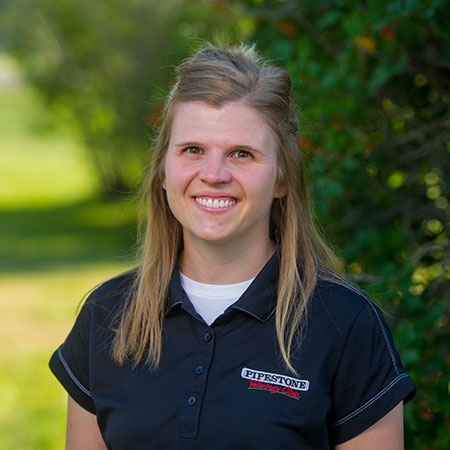 Training | Tools | Tracking
Training | Tools | Tracking
PIPESTONE and the families we work with are committed to producing safe food, protecting our environment, and providing the best care for our animals. Whether I am working with an individual family farmer or the team at PIPESTONE, when it comes to animal welfare we talk about incorporating the three T’s. A good welfare program incorporates Training, Tools, and Tracking to strive for continuous improvement, promote outstanding animal husbandry and provide quality care for our animals.
Training
![]()
Training new caretakers is critical for animal care. PQA+ certification offers an opportunity for new caretakers on your farm to receive thorough training about biosecurity, animal husbandry, animal handling and more. Additionally, nothing beats hands-on learning through mentorship of new caretakers – this should include telling, showing, and doing.
At PIPESTONE, a dedicated team of trainers rotate between farms to teach new caretakers including PQA+ and welfare related protocols. On-going training of our experienced caretakers includes monthly online training sessions related to various welfare topics followed up with in-person discussions. Topics include everything from animal handling to euthanasia, from timely treatments to animal husbandry skills.
Tools

Providing the right tools to treat and care for our animals is an essential component of any welfare program. Examples of this include antibiotics and anti-inflammatory medications which are critical for treating animals if they are sick. Work with your veterinarian and caretakers to ensure they are using the right drugs on the right animals at the right time. Another example includes tools for euthanizing animals. Despite our best efforts, sometimes animals do not respond to our treatments and they need to be euthanized to prevent suffering. We have and continue to work with experts in the industry to make sure we have the right tools to do this.
Tracking

Tracking information is an important part of achieving continuous improvement and success. We talked about antibiotics being an important tool to treat pigs when sick. The Pipestone Antibiotic Resistance Tracker (PART) platform allows producers and their veterinarians to take a deep dive into their antibiotic use and come up with the best plan to meet the health needs of their herd.
Many producers are starting to implement video surveillance for security purposes. This also creates a learning opportunity. Cameras have been installed in approximately 15% of the sow farms managed by Pipestone Management, with the goal of installation in all sow farms in the next 3 years. Cameras located in critical access and critical animal handling areas of the farm (for example, entryway into the farm and load out area) can be used for training purposes. Our health tech audit team assists with reviewing cull load video footage from these farms to monitor animal handling techniques. Feedback is then communicated to the farm teams to encourage continuation of good practices and strive for continuous improvement in areas not meeting our expectations. We don’t want the cameras to be confused as “Big Brother” watching but instead it should be viewed as coach and teammates reviewing game tape to learn and improve.
Through our training, use of appropriate tools and tracking information, we continue to shape and develop a welfare program that provides sustainability for our farms into the future. It will help us sustain the tools that we use to care for our animals. And it will sustain the trust that consumers have in our caretakers and farms.
By: Dr. Carissa Odland, Animal Welfare Director & Swine Veterinarian carissa.odland@pipestone.com
